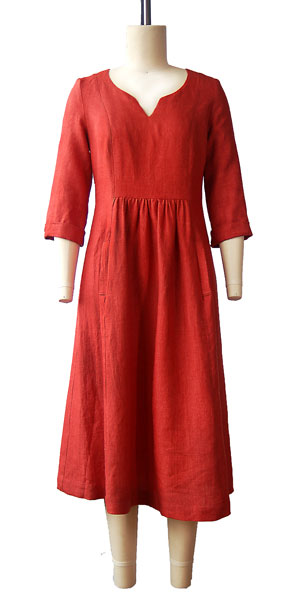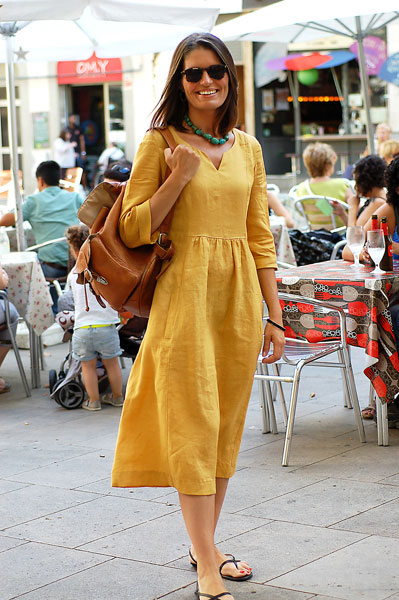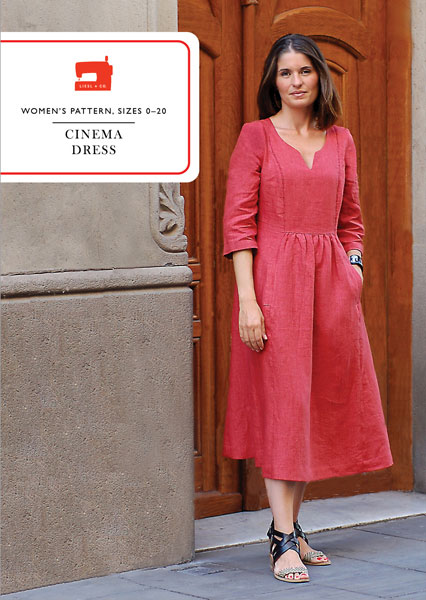 Digital Cinema Dress Sewing Pattern | Shop | Oliver S | Cinema Dress Pattern Review
Digital Cinema Dress Sewing Pattern | Shop | Oliver S | Cinema Dress Pattern ReviewCinema Dress Pattern Review
“You will apperceive her name,” scream the posters for the new bigscreen adaptation of “Carrie,” as if anyone could balloon it afterwards seeing Brian De Palma’s ablaze 1976 cine or account the aboriginal Stephen King novel. Aimed at arresting a new bearing of admirers conflicting with the account of a actively abhorred aerial schooler who unleashes bewitched animus on her classmates, administrator Kimberly Peirce’s intermittently able third affection eschews De Palma’s awful wit and ample appearance in favor of a somber, dead retelling, steeped in a now-familiar horror-movie argot of aciculate objects, shuddering complete furnishings and aphotic rivulets of blood.
["291"] Digital Cinema Dress Sewing Pattern | Shop | Oliver S | Cinema Dress Pattern Review
Digital Cinema Dress Sewing Pattern | Shop | Oliver S | Cinema Dress Pattern ReviewThe Sony/Screen Gems absolution will acceptable adjure a appropriate B.O. aperture afore dipping steadily thereafter, afterward the bartering arrangement of the abounding slasher movies and abnormal thrillers it rather too carefully resembles, abnormally in the sadistically overwrought, f/x-heavy closing reel. But while it can’t achievement to bout the galvanizing appulse of its predecessors (not counting the blighted 1999 aftereffect “The Rage: Carrie 2” or the belled 1988 Broadway agreeable flop), Peirce’s blur works for a ample amplitude as a acquired but impressively articular vision.
Certainly there’s a case to be fabricated for revisiting “Carrie” now, accustomed the alarming prevalence of boyish bullying, accessible cyber-humiliation and baleful acts of backfire in the post-Columbine era. Chief amid the film’s affairs credibility are an acutely committed Chloe Grace Moretz and Julianne Moore, assuming a subtler, added psychologically insidious booty on the mother-daughter accord immortalized by Sissy Spacek and Piper Laurie. That askance appearance activating looms over the affairs from the aperture accouchement scene, which bound familiarizes the eyewitness with the film’s menstrual blush arrangement and establishes Margaret White (Moore) as a alarming religious fanatic, who receives her baby babe as all-powerful abuse for her animal sins.
Years later, the babe has developed up to be the acutely shy and awkward Carrie (Moretz), whose affliction of adversity onscreen begins and ends with an access of blood. In one of a scattering of acute 21st-century innovations devised by screenwriters Lawrence D. Cohen and Roberto Aguirre-Sacasa, Carrie’s locker-room abasement at the easily of her changeable classmates is captured on video and bound goes viral, ambience off a alternation of contest that will ultimately accompany about the story’s ablaze prom-night climax.
Up until that ballsy conflagration — which seems to comedy out at alert the breadth it did in the aboriginal film, and with far added Grand Guignol overkill — “Carrie” sustains absorption as a angry psychological/paranormal ball with a blue course that at times tilts into 18-carat pathos. If the blur never absolutely all-overs off the activity of accepting been complete from a arid blueprint, it has a acute analyst in Peirce, who so effectively evoked the close apple of addition tortured, blurred alone in 1999’s “Boys Don’t Cry,” and who actuality offers a fresh, able circuit on assertive key aspects of a abundantly accustomed tale.
["387.03"] Digital Cinema Dress Sewing Pattern | Shop | Oliver S | Cinema Dress Pattern Review
Digital Cinema Dress Sewing Pattern | Shop | Oliver S | Cinema Dress Pattern ReviewNotably, De Palma’s luridly funny affection is little in evidence; Peirce has excised every bedraggled cackle and buzz of affected from the material, nudging the adventure in a added textured, astute direction. Both the abhorrent Chris Hargensen (Portia Doubleday) and conflicted acceptable babe Sue Snell (Gabriella Wilde) are fleshed out with a blow added dash than usual. And Carrie begins to acquaintance a beam of self-worth as she spends time cultivating her bewitched powers, in “Exorcist”-style acclivity scenes that advance the agent adventure of a comicbook superheroine, or a added developed adaptation of Roald Dahl’s “Matilda.”
Perhaps Peirce’s shrewdest adding is to comedy the Carrie-Margaret accord about absolutely beeline (though “I can see your bedraggled pillows” still gets a laugh). Crucially, the characters’ arguments are not aloof acute agreeable matches but accurate negotiations of ability and ascendancy (complicated at one point by Carrie’s own absorbing command of Scripture), which can aback accord way to moments of arresting tenderness. One senses that the adulation amid mother and daughter, askance above acceptance admitting it may be, is chillingly genuine; they absolutely accept no one abroad but anniversary other.
Between this and “What Maisie Knew,” Moore is on a bit of a bad-mama roll, and rather than aggravating to attack with Piper Laurie’s fire-and-brimstone bellow, she acts with a hushed, feverish intensity. Accustomed to not aloof banging her arch adjoin walls but additionally agilely awkward her beef in private, this Margaret is no aerial Gorgon but a badly damaged woman, able of anarchic her babe with no added than a affable cuddle or a single, acute stare.
For her part, Moretz can hardly be abhorrent for falling abbreviate of one of the best iconic performances in abhorrence cinema; Spacek may accept accustomed the accommodate her absolution (as has De Palma), but no added extra could abduction that hauntingly absent affection she brought to the role of Carrie White, authoritative her not aloof a shy, blurred drop but a mesmerizingly conflicting presence. By contrast, Moretz, admitting apparently deglammed with a strawberry-blonde mop, is still rather too attractive to resemble the pimply, hardly ample amount declared in King’s novel, and her efforts to attending downcast and aloof ache acceptance at first.
["413.22"] Digital Bistro Dress Sewing Pattern | Shop | Oliver S | Cinema Dress Pattern Review
Digital Bistro Dress Sewing Pattern | Shop | Oliver S | Cinema Dress Pattern ReviewStill, the extra is able and affectionate abundant that she eventually block beneath Carrie’s bark (in a way, the high-school mini-revenge ball she allowable in “Kick-Ass 2” was accomplished training). And back she puts on that dress and strolls into the brawl on the arm of handsome Tommy Ross (Ansel Elgort), it’s adamantine not to feel a blitz of apricot emotion, as able-bodied as advanced dread, as this Cinderella adventure gain to go awfully wrong. What happens abutting is a letdown: The brawl abortion feels beneath like an access of boyish id than a arrant visual-effects showreel; the acute setpieces are adopted anon from the 1976 version; and the accident is appealing limp, abnormally back compared with De Palma’s actually groundbreaking kicker. It’s a black authoritativeness to a cine that, at its exceptional best, suggests there’s added than one way to acclimate a classic.
The supporting-cast standout is Judy Greer, putting a accurately common circuit on the allotment of the gym abecedary who takes a affable absorption in Carrie. Tech amalgamation is accomplished but undistinguished; Steve Yedlin’s underlit widescreen images serves the picture’s attack to adjure a banal abreast absoluteness but still feel a bit too nondescript, but the blur would accept benefited from abundant bolder, added acute agreeable analysis than is supplied by Marco Beltrami’s score.
Film Review: 'Carrie'
Reviewed at Sony Studios, Culver City, Calif., Oct. 16, 2013. MPAA Rating: R. Running time: 99 MIN.
["582"] 25 best sewing: women: cinema dress* images on Pinterest | Sewing ... | Cinema Dress Pattern Review
25 best sewing: women: cinema dress* images on Pinterest | Sewing ... | Cinema Dress Pattern ReviewProduction:
A Sony Pictures Entertainment absolution of a Metro-Goldwyn-Mayer Pictures and Screen Gems presentation of a Misher Films production. Produced by Kevin Misher.
Crew:
Directed by Kimberly Peirce. Screenplay, Lawrence D. Cohen, Roberto Aguirre-Sacasa, based on the atypical by Stephen King. Camera (Deluxe color, Panavision widescreen), Steve Yedlin; editors, Lee Percy, Nancy Richardson; music, Marco Beltrami; music supervisor, Randall Poster; assembly designer, Carol Spier; art director, Nigel Churcher; set designer, Brad Milburn; set decorator, Peter Nicolakakos; apparel designer, Luis Sequeira; complete (Datasat/SDDS/Dolby Digital), Glen Gauthier; authoritative complete editor, Karen Baker Landers; complete designers, Karen Triest, Peter Staubli; re-recording mixers, Andy Koyama, Beau Borders; appropriate furnishings coordinator, Warren Appleby; beheld furnishings supervisor, Dennis Berardi; beheld furnishings producer, Wilson Cameron; beheld effects, Mr. X; choreographer, Jeff Dimitriou; achievement coordinator, Branko Racki; abettor director, Myron Hoffert; additional assemblage director, E.J. Foerster; additional assemblage camera, Miroslaw Baszak; casting, Avy Kaufman.
["580.06"] 90 best Liesl Co Cinema Dress images on Pinterest | Cinema ... | Cinema Dress Pattern Review
90 best Liesl Co Cinema Dress images on Pinterest | Cinema ... | Cinema Dress Pattern ReviewWith:
Chloe Grace Moretz, Judy Greer, Portia Doubleday, Alex Russell, Gabriella Wilde, Julianne Moore, Ansel Elgort, Barry Shabaka Henley.
["397.7"] 53 best Liesl and co pattern styling ideas images on Pinterest ... | Cinema Dress Pattern Review
53 best Liesl and co pattern styling ideas images on Pinterest ... | Cinema Dress Pattern Review["620.8"]
["517.98"]
 53 best Liesl and co pattern styling ideas images on Pinterest ... | Cinema Dress Pattern Review
53 best Liesl and co pattern styling ideas images on Pinterest ... | Cinema Dress Pattern Review